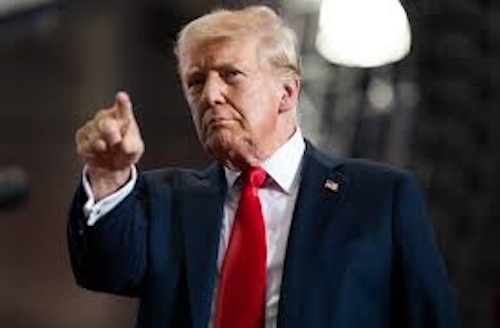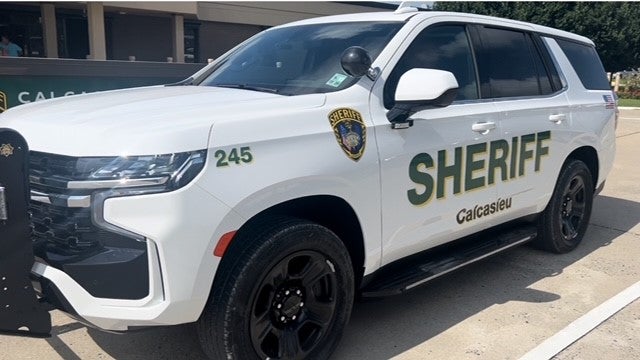Jim Beam column:Electoral College not perfect
Published 6:28 am Saturday, October 19, 2024

- The Electoral College has given swing states the most attention in presidential elections.(Image courtesy of the United Electrical Workers).
The fact that seven swing states are hogging all of the attention during the current presidential campaign has many voters in the other 43 states again calling for an end to the Electoral College system.
Members of that system — called electors — are the individuals who actually vote for president. Most of them are selected at state party conventions. In a smaller number of states they are selected by the state party’s central committee.
The Constitution says they can’t be a member of Congress or hold federal office. The 14th Amendment also says that electors can’t be anyone who has “engaged in insurrection or rebellion against the United States or given aid or comfort to its enemies.”
George Edwards III, emeritus political science professor at Texas A&M University, said the Electoral College was never intended to be the “perfect” system for picking the president, according to history.com.
“It wasn’t like the founders said, ‘Hey, what a great deal! This is the preferred way to select the chief executive, period,’” Edwards said. “They were tired, impatient, and frustrated. They cobbled together this plan because they couldn’t agree on anything else.”
Five candidates who lost the popular vote but won the electoral vote and became president were John Quincy Adams in 1824, Rutherford B. Hayes in 1876, Benjamin Harrison in 1888, George W. Bush in 2000 and Donald Trump in 2016.
Five candidates who won the popular vote but lost the electoral vote were Andrew Jackson in 1824, Samuel Tilden in 1876, Grover Cleveland in 1888, Al Gore in 2000 and Hillary Clinton in 2016.
Under the Electoral College system, the first candidate to get 270 of the 538 electoral votes becomes president. And the number of congressional members in each state determines how many electoral votes that state has. Louisiana has six members of the U.S. House and two U.S. senators, so it has eight electoral votes.
California has 54 electoral votes. Texas has 40. Florida has 30. New York has 28 and Illinois and Pennsylvania have 19 each. Ohio has 17. Georgia and North Carolina have 16 each.
In 2020, three percentage points or less decided who won in seven states. Those swing states that year were Arizona, Georgia, Michigan, Nevada, North Carolina, Pennsylvania and Wisconsin.
President Joe Biden topped former President Donald Trump by nearly 7 million popular votes and 74 electoral votes in 2020. Biden won Arizona, Georgia, Michigan, Nevada, Pennsylvania, and Wisconsin. Trump won North Carolina.
If no one receives a majority of electoral votes, which has happened twice, the U.S. House picks the winner and each state gets one vote.
In 1800, Thomas Jefferson and Aaron Burr tied for first place 73-73. President John Adams had only 65 votes. Alexander Hamilton, who was treasury secretary, lobbied for Jefferson who became president. He said Burr “loves nothing but himself.”
Burr became vice president and killed Hamilton in a duel three years later while still in office. The 12th Amendment was added to the Constitution to specify that electors vote separately for the nation’s two highest offices.
In 1824, Andrew Jackson won the popular vote and captured 99 electoral votes. Secretary of State John Quincy Adams took 84 electoral votes, Treasury Secretary William Crawford had 41 electoral votes and House Speaker Henry Clay had 37.
No candidate had a majority of electoral votes so the House selected the president. Clay and his supporters selected Adams and he won the House vote.
Members of the Electoral College meet in their respective states the first Monday after the second Wednesday in December and cast their official votes for president and vice president. Forty-eight states and the District of Columbia have a winner-take-all system, which means the party whose candidate wins the popular vote in a state gets all of its electoral votes. Maine and Nebraska have a “district system,” which means electors vote for president depending on who won in the state’s congressional districts.
Those who don’t vote the way they are supposed to are called “faithless electors.” However, faithless electors have never decided an election and 99% of electors in U.S history have voted the way they pledged to do.
This country’s presidential election system isn’t perfect but as Professor Edwards said, those who came up with it “couldn’t agree on anything else.”
Jim Beam, the retired editor of the American Press, has covered people and politics for more than six decades. Contact him at 337-515-8871 or jim.beam.press@gmail.com.
| ReplyForward
Add reaction |





